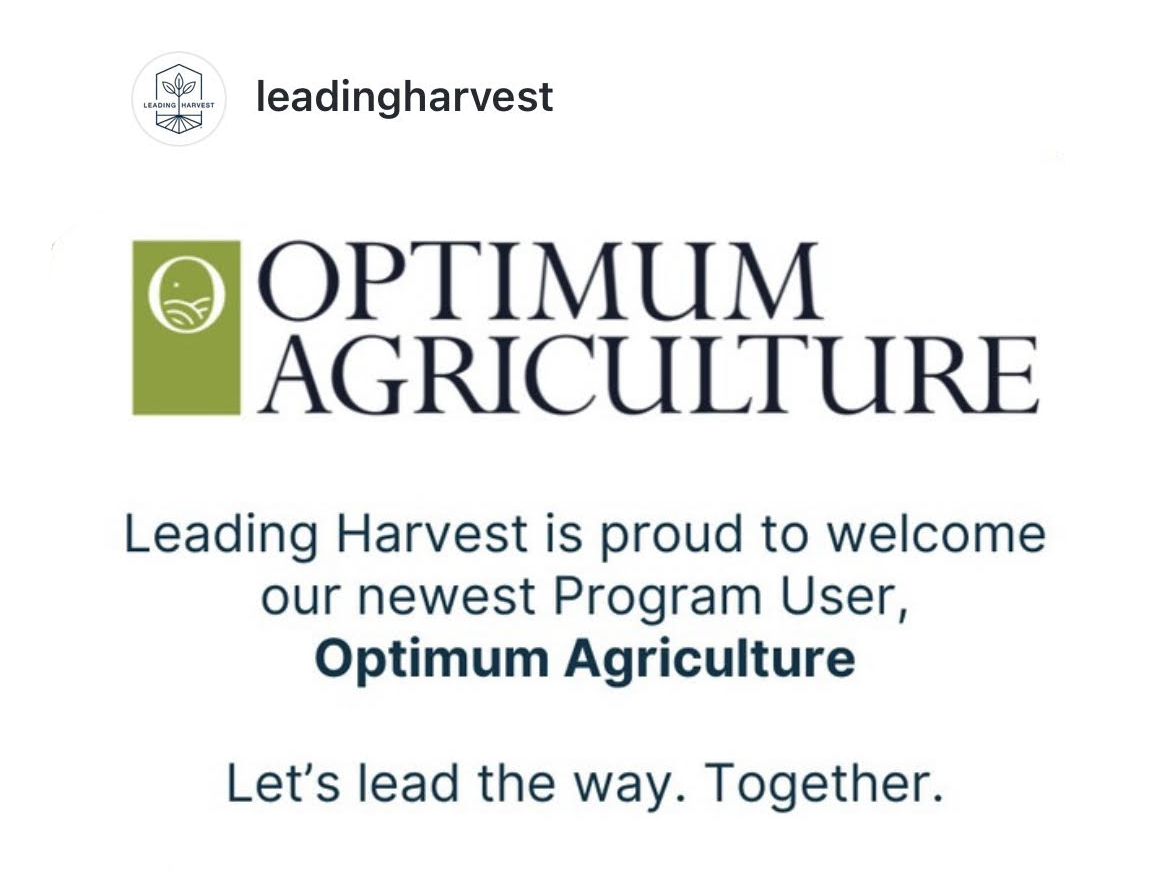OPTIMUM OVERVIEW
Sustainable agribusiness is a vital part in the challenge of combating climate change, stabilizing global food supply systems and securing high quality, nutritious food for the world population. Investing in farmland has the significant potential to make positive contributions to the UN Sustainable Development Goals, and Optimum Agriculture recognizes the need to protect and preserve land resources by implementing sustainable farming practices across the entire organization. Using solar power installations, local investments and knowledge, and state-of-the art technology and data collection, OA aims to fill an essential role in the quest for progress in each of the communities it enters, raising the bar for environmental responsibility, yield and profit.
OPTIMUM OVERVIEW
“Sustainable agribusiness is a vital part in the challenge of combating climate change, stabilizing global food supply systems and securing high quality, nutritious food for the world population. Investing in farmland has the significant potential to make positive contributions to the UN Sustainable Development Goals, and Optimum Agriculture recognizes the need to protect and preserve land resources by implementing sustainable farming practices across the entire organization. Using solar power installations, local investments and knowledge, and state-of-the art technology and data collection, OA aims to fill an essential role in the quest for progress in each of the communities it enters, raising the bar for environmental responsibility, yield and profit.”


Solar water system for livestock

Put the sun to work in remote locations

Sustainable Production
- Crops, livestock, fisheries
- Animal welfare
- Timber & wood products
- Sustainability standards

Sustainable Consumption
- Nutrition
- Healthy foods
- Food safety
- GMOs
- Food waste

Sustainable Agricultural Technology
- Smart irrigation
- Biowaste
- Green chemistry
- Digital precision agriculture, big data and software

Conservation & Climate Change
- Climate change mitigation and adaptation
- Deforestation
- Land care & soil health
- Water use
- Biodiversity

Social Equity & Sustainable Livelihoods
- Fair trade
- Workers’ rights
- Women farmers
- Food sovereignty
Optimum Agriculture Sustainable Best Practices
- Developing a sustainable business model
- Reducing toxicity using the latest chemical and biological agriculture technologies
- Applying seed treatments that allow reductions in pesticide and fertilizer use
- Reducing fossil fuel consumption through the use of solar panels
- Adopting renewable (solar) energy sources
- Ensuring quality and traceability of agricultural products
- Adapting supply chains to reduce products carbon footprint
- Changing animal protein consumption patterns
- Educating consumers on the carbon footprint of food products
- Leveraging digital tools to bring efficiency-boosting data and insights to farm operators
- Using smart drip irrigation systems that optimize water efficiency through the use of humidity sensors in the soil
- Implementing the best cultivation practices (e.g. plant covers, minimum tillage) to create the ideal habitats for maintenance and preservation of farm biodiversity
- Improving constantly employee safety protocols
- Conducting skills training for employees on best manufacturing and sustainable practices

